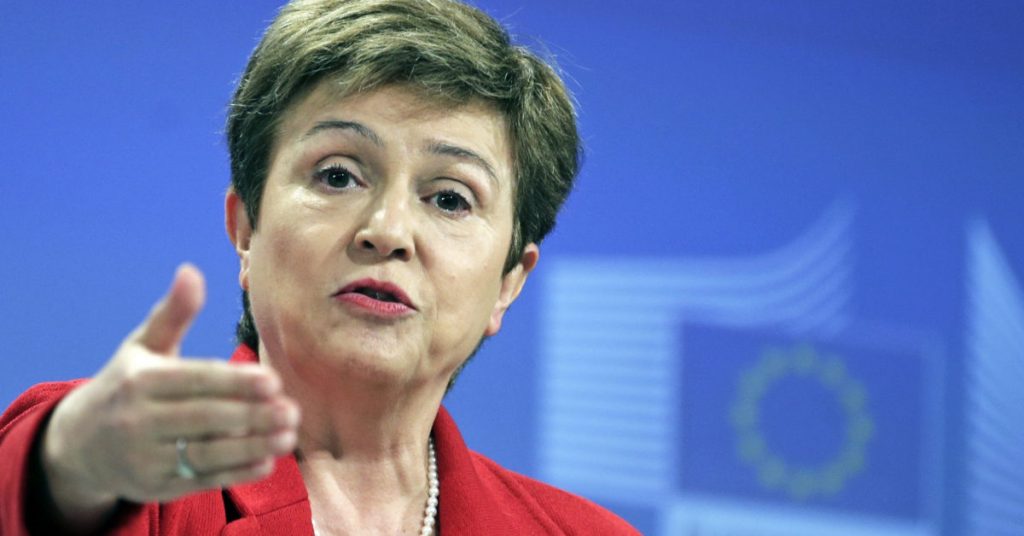[ ABC News ] Why World Bank is under fire over set of rankings
World Bank has long been accused of using sloppy methodology and of succumbing to political pressure in producing the rankings. This week, the bank dropped the report after investigators had reviewed internal complaints about “data irregularities’’ in the 2018 and 2020 editions of “Doing Business” and possible “ethical matters” involving World Bank staff members.
In an investigation conducted for the bank, the law firm WilmerHale concluded that staff members fudged the data to make China look better under pressure from Kristalina Georgieva, then the CEO of the World Bank and now head of the International Monetary Fund, and the office of Jim Yong Kim, then the World Bank’s president.
Questions surrounding the report date back to at least 2018, when Paul Romer, then the chief economist of the World Bank, who would go on to win a Nobel Prize in economics for his earlier work, resigned after complaining about how “Doing Business” treated Chile.
As a result of methodological tinkering, the South American country had plunged in the rankings while socialist Michelle Bachelet occupied the presidency, rebounded under conservative Sebastian Pinera, then slumped again when Bachelet returned to power. The ups and downs occurred despite little actual change in policy, according to a summary of events by the Center for Global Development think tank, which called then for the bank to “ditch’’ the report.
Justin Sandefur, a senior fellow at the center, contends that the rankings have always reflected a bias against government intervention in the economy. He said, for example, that the rankings have failed to properly assess any benefits from state spending or worker and consumer protections.
“It came from a very strong anti-regulatory anti-tax, get-the-state-out-of-the-way-so-the-private-sector-can-thrive approach,” Sandefur said. “That was the original sin. It is deep in the DNA’’ of the report.

WilmerHale delivered another blow to the World Bank and the “Doing Business” rankings. World Bank staffers who were compiling the 2018 report were preparing to knock China down to No. 85 in the rankings from No. 78 the year before. The downgrade would have come at a time when the World Bank was trying to raise capital — an effort in which Beijing, the bank’s No. 3 shareholder, was expected to play a “key role,’’ according to the law firm’s report.
The investigation found that Georgieva “became directly involved in efforts to improve China’s ranking.'”
According to the investigation, she also lambasted the bank’s China director for “mismanaging” the bank’s relations with Beijing and for failing to appreciate how important the “Doing Business” rankings were to the Chinese leadership. Under pressure from the top, the investigators found, the bank staff decided to give China more credit for a new law involving so-called secured transactions — typically, loans that involve collateral. The upshot was that China ended up back where it was the rankings — No. 78. (Other changes affected the rankings of Azerbaijan, the United Arab Emirates and Saudi Arabia.)
WilmerHale concluded that bank staffers knew that the changes to the report were “inappropriate” but feared retaliation — including dismissal — if they expressed concern. The law firm referred to a “toxic culture” at the bank.
In a statement, Georgieva rejected the report: “I disagree fundamentally with the findings and interpretations of the Investigation of Data Irregularities as it relates to my role in the World Bank’s Doing Business report of 2018.”
The incident also highlights China’s growing willingness to throw its weight around in international organizations such as the World Bank and the World Health Organization.
“China is clearly not shy about using its rising clout in international organizations to control the narrative about its economy and its government’s policy choices,” Prasad says. “For international institutions trying to remain relevant in a fast-changing world, keeping a major shareholder such as China happy can sometimes override more objective analytical considerations.’’
DPA Notes: In our opinion, almost every international body is infiltrated.
Just like WHO telling people it is okay for China to open its border, and no one should close their borders to China at the start of the virus spreading in Wuhan – despite China had entire locked down itself from internal travels – which finally became a global pandemic.
So World Bank? Of course~
And with the compromised former World Bank CEO going to IMF – we can confidently say, IMF is also now compromised.

